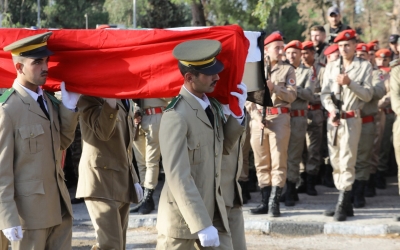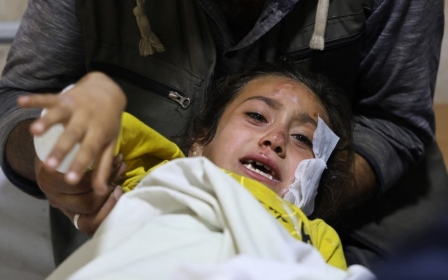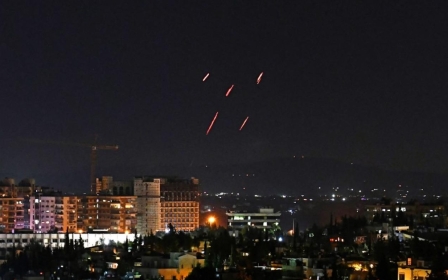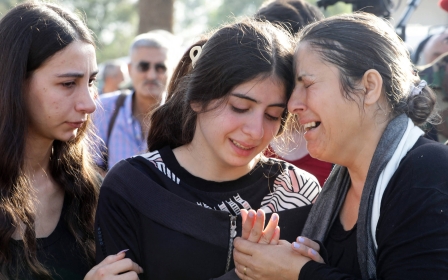UN: Syria seeing largest escalation of hostilities in four years
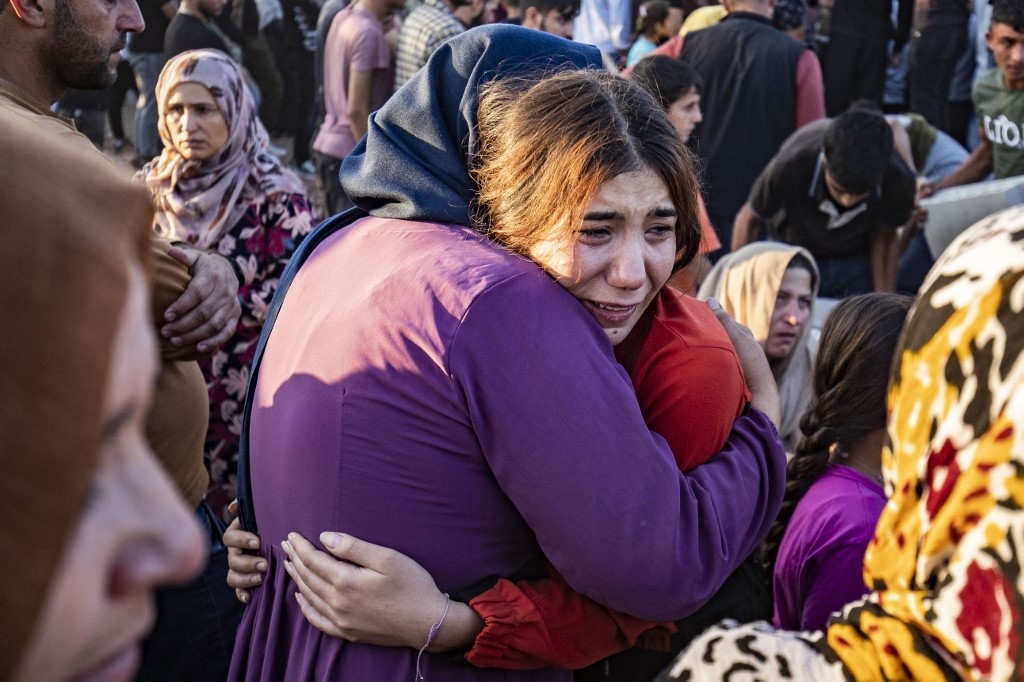
The United Nations Independent International Commission of Inquiry on Syria is investigating the alleged use of weapons banned under international law, the chair of the inquiry, Paulo Pinheiro, has told Middle East Eye.
"We are investigating alleged incidents of the use of cluster munitions and incendiary weapons and will report on our detailed findings in March 2024," Pinheiro told MEE on Friday.
"We call on the parties to the conflict to comply with their obligations under international humanitarian and human rights law and to refrain from putting civilian lives at risk for perceived political or military gain."
He added: "We are concerned that civilians are bearing the brunt of intensified artillery and rocket fire, including on densely populated urban areas in several regions in Syria over the last few weeks."
An official in the Syria Civil Defence force, known as the White Helmets, told MEE: "The regime forces [Syrian government forces] launched attacks with internationally banned weapons in nine areas in northwestern Syria, from the beginning of October until Friday.
New MEE newsletter: Jerusalem Dispatch
Sign up to get the latest insights and analysis on Israel-Palestine, alongside Turkey Unpacked and other MEE newsletters
"On the evening of 6 October, Syrian ground-to-ground missiles, loaded with cluster munitions, targeted the town of Termanin in Idlib province, killing two and wounding eight civilians," Ahmed al-Yaziji, a member of the White Helmets' board of directors, said.
"The areas of Jisr al-Shughur, al-Atareb, al-Tawama, Darat Azza and al-Abzimo were targeted with explosive incendiary missiles. We have a complete record that explains in minute detail every one of the attacks," Yaziji, who is stationed in northern Syria, said.
Activists based in northwest Syria told MEE that they believed the city of Sarmin, west of Idlib, was targeted by Syrian forces on Thursday with napalm bombs, a banned chemical weapon.
Retaliatory attacks
"We are witnessing the largest escalation of hostilities in Syria in four years," Pinheiro said in a statement to the UN General Assembly on Tuesday.
Earlier this month, Syrian forces retaliated following an attack on a graduation ceremony at the Homs Military Academy that killed at least 123 people, including officers and parents of the graduating students, and wounded at least 150, according to the UK-based Syrian Observatory for Human Rights.
In just four days of ground shelling over greater Idlib, some 200 civilians were killed or injured.
"In apparent retaliation for an attack that injured two members of the Turkish security forces in Ankara on 1 October, Turkey reportedly responded with heavy bombardment of [US-backed] Syrian Democratic Forces in Hasakeh [a city in northeastern Syria]," Pinheiro added.
Drone strikes by Turkey on Kurdish-held areas of northeast Syria between 5 and 10 October damaged critical infrastructure and resulted in disruptions to the water and electricity supply of millions of people, Human Rights Watch (HRW) said in a report on Thursday.
Citing civilian groups, HRW said that there had been 150 attacks on the area, with dozens of people killed.
"By targeting critical infrastructure across northeast Syria, including power and water stations, Turkey has flouted its responsibility to ensure that its military actions do not aggravate the region's already dire humanitarian crisis," Adam Coogle, deputy Middle East director at HRW, said.
In addition to the Syrian, Russian and Turkish attacks, the north and south of Syria have also been attacked by Israel, which has put Damascus and Aleppo International Airports out of service four times since the beginning of the Israeli-Palestinian war on 7 October.
Israel, which has launched thousands of attacks on Syria over the last decade, rarely claims responsibility for its attacks.
Attacking infrastructure
"In response to rocket launches from Syria towards Israel yesterday, IDF fighter jets struck military infrastructure and mortar launchers belonging to the Syrian Army," the Israeli army said in a statement on Wednesday on X (previously known as Twitter).
The Syrian Ministry of Defence said in a statement on Facebook that the attack had killed eight soldiers.
The ministry said on 12 October that the Syrian army would continue to strike the rebels in the north of the country, describing them as the armed arm of the Israeli army.
Since then, the ministry has been publishing videos purporting to be attacks on the rebels, describing them as terrorists.
A rebel military source told MEE that two media workers believed to be linked to the Hay'at Tahrir al-Sham that the Islamist group that controls Idlib, were injured as a result of an attack.
Suhaib Mukhal, a lawyer and human rights activist based in Idlib, told MEE that "the attacks hit civilian facilities and infrastructure in the region".
He added: "There were attempts to bomb and destroy the Land Registry, the Directorate of Education and the Ministry of Agriculture, and the university hospital was also bombed.
"It is clear that the aim of the attacks is to destabilise security and stability."
Endless violence
"In just four days, at least 13 medical facilities and 11 schools have been damaged and tens of thousands of people have been yet again internally displaced, fleeing intense bombardment," Pinheiro told MEE.
"In principle, we view engagement and dialogue by all parties as necessary and important in order to find a just and peaceful resolution to the conflict in Syria, to ensure accountability and restore the basic human rights that have been so long denied.
"As a commission that has documented serious human rights violations over the last 12 years, our message would be to not forget the victims of this conflict - and to ensure that dialogue and engagement are also focused on action to protect the rights of the civilian population which has borne the brunt of the war."
Hundreds of thousands of civilians have been killed in Syria since civil war broke out in 2011, while millions have been displaced.
This article is available in French on Middle East Eye French edition.
Middle East Eye delivers independent and unrivalled coverage and analysis of the Middle East, North Africa and beyond. To learn more about republishing this content and the associated fees, please fill out this form. More about MEE can be found here.


